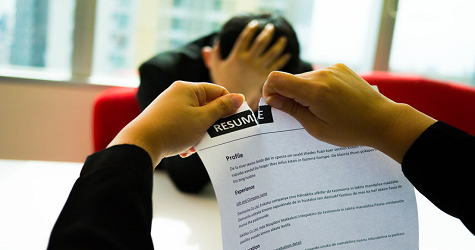
Is your executive job search not working even though you are doing everything possible? Are you spending lots of time and effort but seeing no results? Then it might be that you are doing it all wrong and perhaps even jeopardizing your chances of success. There are several disastrous moves that can kill your job search. Here are eight of the top ones.
8 Disastrous Moves That Kill Your Executive Job Search:
1. You expect the executive resume alone to land you the interview — and it won’t. The executive resume is like a business card/email signature. A business card/email signature alone won’t get you business. It’s what you do with the business card/email signature that gets you business. An executive resume is the same type of marketing document.
2. You write your executive resume solely focusing on what you do and not cherry picking relevant achievements that speak to what’s needed in your target job descriptions. (And you wonder why hiring managers don’t call you.)
3. You lead with “25+ years of experience,” “seasoned” or other age disclosing terms, then get frustrated when companies (wrongly) use age against you. Lead with ageless achievements.
4. You only apply to job postings and don’t speak to humans. Get out from behind your computer and go meet people at in-person networking events, coffee meetings, and virtual video calls.
5. You are on LinkedIn … but you don’t work LinkedIn. Too many frustrated job seekers are seeking the holy grail of magic keywords to be found. There isn’t a magic set of keywords. Contributing to LinkedIn in forums where your target hiring manager hangs out online is how you get found and how to find hiring managers.
6. You submitted to 100+ postings, but you haven’t reached out to a hiring manager at a target employer, even if a job posting isn’t present. Many jobs never get posted—so if you are only submitting to job postings, you are missing out on a lot of job openings!
7. You aren’t sure how to market yourself, so you don’t. You distract yourself with research and continuous resume editing to stay “busy” and subliminally sabotage yourself by not reaching out to employers.
8. When interviewing, you assume the interviewer knows what you do since they read your resume. First interview mistake is that you assume they read it. And the second interview mistake is, as a result, you are not selling yourself as you compete against other candidates who vie for the same job as you.
Once you know what you are doing wrong, then you can do more of the right things and finally land your ideal job in 2020. And remember, you can always enlist the help of a professional resume writing and career consulting business.

